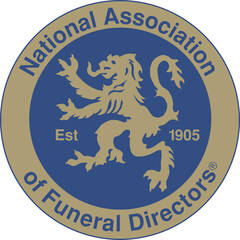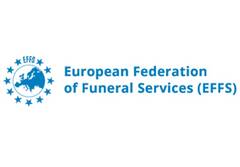Key Considerations When Choosing Between Burial or Cremation

There is a lot to consider when choosing between burial or cremation. It’s often a decision that the family has to make when the deceased person has not left instructions.
It can be difficult as some people can be unsure of what their loved one would have preferred. This guide goes through the key considerations in order to make it easier to make the choice between burial or cremation.
So, before you decide, it’s important to weigh up all the factors. We also hope it will be helpful to those who have strong feelings about their own funeral and who are keen to discuss their preferences with their family in advance.
What to think about when deciding what is best
- Location and funeral service format
- Costs
- Religious beliefs
- Environmental considerations
- Direct cremation
- After the funeral
Location and funeral service format
Finding the right location that suits the family is key. The order of a funeral ceremony is up to you although there may be time restrictions at your chosen venue. Irrespective of whether your loved one is to be buried or cremated; you may wish to have a committal service after the main funeral service. With a cremation, the main service can be held at a religious venue with a committal service at the crematorium or both can take place at the crematorium. At a burial, the committal service usually takes place at the graveside. Following the funeral service and committal, you can choose to have a wake or funeral reception.
Costs
When choosing between burial or cremation, it is important to consider the funeral costs involved. The 2021 SunLife report states that the average cost for a funeral in 2021 was £4,056, a drop of 3.1% since 2020. When considering your options, cremation comes out at an average of £3,765 and £4,927 for a burial with a direct cremation at a cost of £1,647. It is important to put together all the costs as extras can be added depending on how the funeral is planned. It should also be noted that some areas are more expensive than others, particularly London, the Southeast and East England, Yorkshire and the Humber and the east and West Midlands.
Religious beliefs
This is a major consideration when choosing between burial or cremation and the religious beliefs of the person who has died must be honoured. It should be noted that some religions do not allow cremations and hence the only option is burial.
Buddhism - Cremation or burial can be chosen, although the former is widely selected, as it is believed Gautama Buddha was cremated.
Hinduism - Cremation is normally favoured as this severs the ties of the soul it is leaving so it is free to move toward mukti, meaning liberation.
Sikhism - Cremation is preferred although burial is allowed.
Judaism – Jewish law states that the body should be washed, dressed and buried as soon as possible. However, Reform Jews do allow cremation.
Islam – Muslims believe the body should be honoured and respected as it was in life, so cremation is forbidden.
Christianity - Up until the 1960s, the Catholic Church did not allow cremation. Today, it is widely accepted although the cremated remains must be buried or stored in a sacred place and not scattered or taken home by loved ones.
The Baptist and other fundamentalist Christian denominations including The Eastern Orthodox Church do not permit cremation, whereas Methodist and Lutheran churches do.
Viewing the body is also an important element of the funeral ritual for some cultures, which is possible prior to a burial or cremation.
Environmental considerations
In recent times, people are increasingly conscious of the environmental impact, when planning a funeral. When choosing between burial or cremation, both have their pros and cons and there is a lot of debate about which is the most sustainable. You can choose a totally green funeral, which is an alternative to a traditional funeral. Today, the body does not have to be embalmed and coffins can be made of natural materials with biodegradable options as well. There is also the choice of a woodland or natural burial. Inevitably it is down to your choice and CPJ Field is happy to guide and advise in line with your wishes.
Direct cremation
This is also known as a direct funeral and is one that does not have a traditional funeral service. Embalming and coffins are not required or any other funeral arrangements and so it is the most economical choice. With no service, coffin, flowers, cars and order of service required, considerable cost savings can be made although this choice should be taken carefully and with advice, due to its limitations, some of which can be negative.
After the funeral
Various memorialisation options are available after the funeral. Following a cremation, the ashes can be returned to the family.
- Placed in an urn to be kept in the family home
- Scattered in a place that was special and/or loved
- Interment of the ashes – the final resting place can be visited
- Unique creations – jewellery, vinyl records, memorial cuddly toy
Following a non-attendance cremation, many people like to arrange a memorial service or a celebration of life. This can be at a time and a place away from the crematorium. It can be organised days, or even weeks or months afterwards so that those family members and friends who are further away can attend. Often the ashes are present.
With a burial, a headstone can be erected which provides a physical location for family and friends to visit. It’s also possible to choose trees, statutes or benches as memorials.
For more information please see our advice page on what happens after the funeral. The page is there to help navigate you through the challenging path of grief.
So, what are people choosing?
SunLife reports that overall, in 2021, 57% of funerals were cremations, 25% burials and 18% direct cremations.
How can CPJ Field help you to decide on a burial or cremation?
This is a decision that in an ideal scenario, the person who has died has left instructions for as well as a prepaid funeral plan. However, this is often not the case and it will always be a difficult and deeply personal selection, which you may want to discuss with family members and friends. It will be influenced by location and funeral service format, a person’s religious beliefs, concerns for the environment and cost. Naturally, CPJ Field has a lot of experience and your funeral director will be happy to go through the key considerations when choosing between burial or cremation and to support you through the planning process and beyond.





